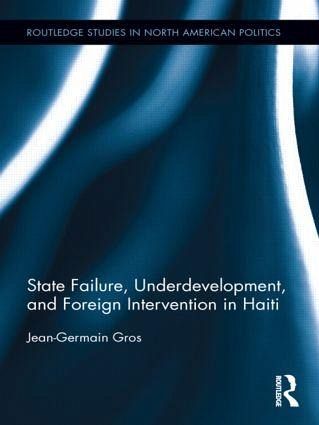
State Failure, Underdevelopment, and Foreign Intervention in Haiti
Versandkostenfrei!
Versandfertig in 1-2 Wochen
177,99 €
inkl. MwSt.
Weitere Ausgaben:

PAYBACK Punkte
89 °P sammeln!
Failed states are a huge problem in international relations, threatening world order in a number of ways. Conflicts in failed states often spill unto neighbouring states, failed states make for unreliable partners in the resolution of global social problems such as poverty and AIDS, and failed states magnify the effects of natural disasters such as hurricanes and earthquakes. In response to the multiple threats posed by failed states, working states, sometimes acting alone sometimes in concert with others, have undertaken military operations, often under the rubric of humanitarian intervention...
Failed states are a huge problem in international relations, threatening world order in a number of ways. Conflicts in failed states often spill unto neighbouring states, failed states make for unreliable partners in the resolution of global social problems such as poverty and AIDS, and failed states magnify the effects of natural disasters such as hurricanes and earthquakes. In response to the multiple threats posed by failed states, working states, sometimes acting alone sometimes in concert with others, have undertaken military operations, often under the rubric of humanitarian intervention. This book is a historical study of state failure, underdevelopment and foreign intervention in light of the Haitian experience with all three. Its main thesis is that state failure has been a recurring feature of Haitian political life for much of the country's history, and this inability of the Haitians to craft a viable political order is at the heart of Haitian poverty and underdevelopment. Haitian state-making failure is underwritten by a complex array of deleterious local and external institutions, as well as natural constraints, including class, lack of elite cohesion, geography, population growth, the social origins of the Haitian polity, imperialism, and technology.














